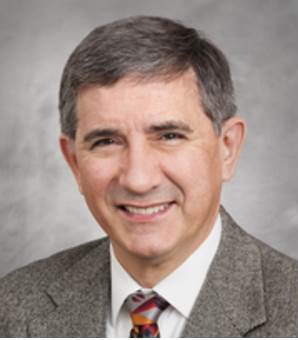Walter Boron, M.D., Ph.D.
Office Address
Case Western Reserve, SoM E524
10900 Euclid Ave.
Cleveland, OH 44116
Position Title
ProfessorAreas of Interest
Acid-base homeostasis-regulation of intracellular pH, gas channelsNarrative Bio
Dr. Walter Boron obtained his undergraduate degree in chemistry at Saint Louis University in 1971, graduating Summa cum laude. He studied medicine and physiology at Washington University in St. Louis, where he received his M.D. and Ph.D. in Physiology and Biophysics in 1977 under the mentorship of Albert Roos. During this time, Boron also collaborated with Paul De Weer and John Russell. He joined Yale University as a postdoctoral fellow with Emile L. Boulpaep in 1978.
Dr. Boron is the 72nd president of the American Physiological Society (from 1999 to 2000). He is currently secretary-general of the International Union of Physiological Sciences. Additionally, Boron is co-editor, along with Emile L. Boulpaep, of the text book Medical Physiology and former editor-in-chief of two leading physiology journals, Physiological Reviews and Physiology.
Today, Dr. Boron is the David N. and Inez Myers/Antonio Scarpa Professor and chairman of the Department of Physiology and Biophysics at Case Western Reserve University.
Laboratory Web Site
https://physiology.case.edu/people/faculty/walter-f-boron/
Research
We have three major research areas. These evolved from our longstanding interest in intracellular pH (pHi) homeostasis, which is critically important because virtually every biological process—cell division, metabolism, action of channels/transporters/structural proteins—depends on pHi. Our three projects interact philosophically and technically. Philosophically, pHi homeostasis depends on HCO3− and H+ transport across cell membranes, which in turn depends on pH, [CO2] and [HCO3−] in the extracellular (o) fluid. The kidneys regulate pHo by regulating [HCO3−]o—and they do this by using novel sensors to sniff CO2 and HCO3− in the blood. The lungs, controlled by brainstem neurons, regulate pHo by regulating [CO2]o. The whole system depends on movements of CO2 (and other gases) through gas channels in the cell membrane. Technically, our projects exploit technologies ranging from structural biology, through molecular and cell physiology, to whole tissues and organisms.) fluid. The kidneys regulate pHo by regulating [HCO3−]o—and they do this by using novel sensors to sniff CO2 and HCO3− in the blood. The lungs, controlled by brainstem neurons, regulate pHo by regulating [CO2]o. The whole system depends on movements of CO2 (and other gases) through gas channels in the cell membrane. Technically, our projects exploit technologies ranging from structural biology, through molecular and cell physiology, to whole tissues and organisms.
Publications
For a complete list of Dr. Boron's publications, please visit: Boron PubMed
Post Graduate Training
- 1978-1980: Postdoctoral Fellow, Dept. of Physiology, Yale University School of Medicine, New Haven, Connecticut.
- 1977-1978: Postdoctoral Fellow, Dept. of Physiology and Biophysics, Washington University School of Medicine, St. Louis, Missouri.
- Physiology Updated 2nd Edition in category Basic and Clinical Sciences of BMA Medical Book Awards, 2012
- British Medical Association Certificate of Honor (shared with E.L. Boulpaep & Elsevier) for Medical
- Palade Gold Medal (shared with William Catterall and Richard Tsien), Wayne State University, 2010
- Ray G. Daggs Award, American Physiological Society, 2011
- PROSE (Professional and Scholarly Excellence) Award for the journal Physiology in category Journal, Best Design in Print, Association of American Publishers, 2009
- Sharpey-Schafer Award, The Physiological Society (London), 2008
- Homer Smith Award, American Society of Nephrology, 2005
- NIH MERIT Award (NIDDK), 2002-2011
- Elected Fellow, American Academy for the Advancement of Science, 1998
- Carl W. Gottschalk Lecture and Award, Renal Section of the American Physiological Society, 1998
- Robert F. Pitts Lecture and Award, Renal Commission of the International Union of Physiological Sciences, 1993
- Charles W. Bohmfalk Teaching Award, Yale University School of Medicine, 1993
- Young Investigator Award, American Society of Nephrology & American Heart Association, 1986
- NIH Research Career Development Award, 1983-1988
- Searle Scholar, 1981-1984
- NIH Research Service Award (postdoctoral fellowship), 1977-1980
- Sigma Xi
- Phi Beta Kappa, Alpha Sigma Nu, Pi Mu Epsilon, Beta Beta Beta Grass Foundation MBL Fellow, 1975
- Marcus Award (undergraduate research in chemistry), 1971
Education
- M.D. - Washington University, St. Louis, Missouri
- Ph.D. - Physiology and Biophysics, Washington University, St. Louis, Missouri
